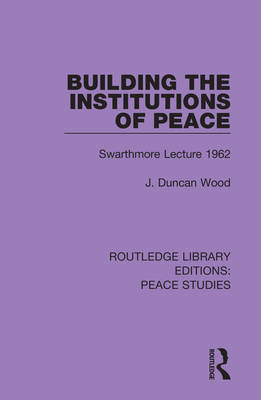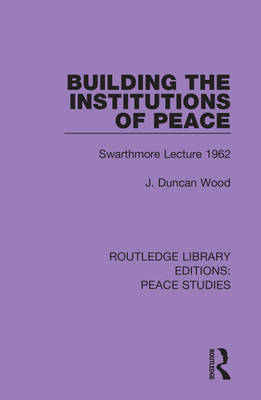
- Afhalen na 1 uur in een winkel met voorraad
- Gratis thuislevering in België vanaf € 30
- Ruim aanbod met 7 miljoen producten
- Afhalen na 1 uur in een winkel met voorraad
- Gratis thuislevering in België vanaf € 30
- Ruim aanbod met 7 miljoen producten
Omschrijving
The pacifist principle, so cogently expressed in the Declaration to Charles II, has led succeeding generations of Quakers to consider the application of this principle to international affairs. William Penn's 'Essay towards the Present and Future Peace of Europe', which proposes international machinery for keeping the peace, is the first of a series of Quaker contributions to a body of thought which has been given some practical expression during the twentieth century. Originally published in 1962, the present lecture is not occasioned by a significant anniversary of William Penn's essay, published in 1693, but by the urgent relevance of its ideas to the current international impasse.
The lecture is based on the assumption that the tradition of Quaker political thinking which Penn initiated remains a living and vital one, to whose cultivation and renewal Friends can rightly devote a measure of their time, their energy and their concern. This requires that Friends think deeply about the nature of the present struggle for world power and the measures that can be taken to abate it; about the direction which existing international institutions should take in order to promote the present and the future peace of the world; and about the role of a religious society both within and without the realm of politics. Of necessity and intention, the lecture asks more questions than it can answer.
Specificaties
Betrokkenen
- Auteur(s):
- Uitgeverij:
Inhoud
- Aantal bladzijden:
- 114
- Taal:
- Engels
- Reeks:
- Reeksnummer:
- nr. 12
Eigenschappen
- Productcode (EAN):
- 9780367243777
- Verschijningsdatum:
- 17/07/2019
- Uitvoering:
- Hardcover
- Formaat:
- Genaaid
- Afmetingen:
- 135 mm x 198 mm
- Gewicht:
- 226 g

Alleen bij Standaard Boekhandel
Beoordelingen
We publiceren alleen reviews die voldoen aan de voorwaarden voor reviews. Bekijk onze voorwaarden voor reviews.











